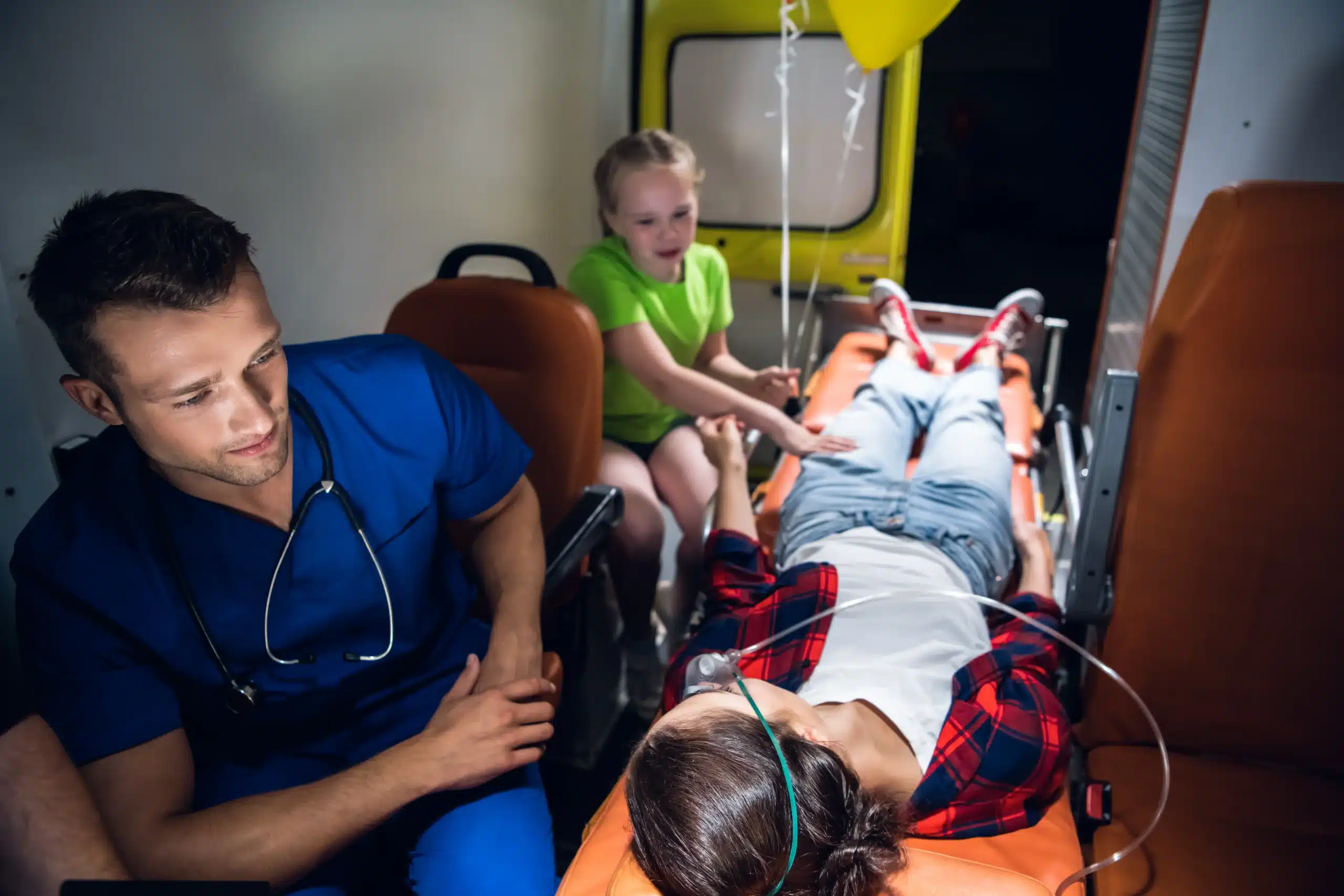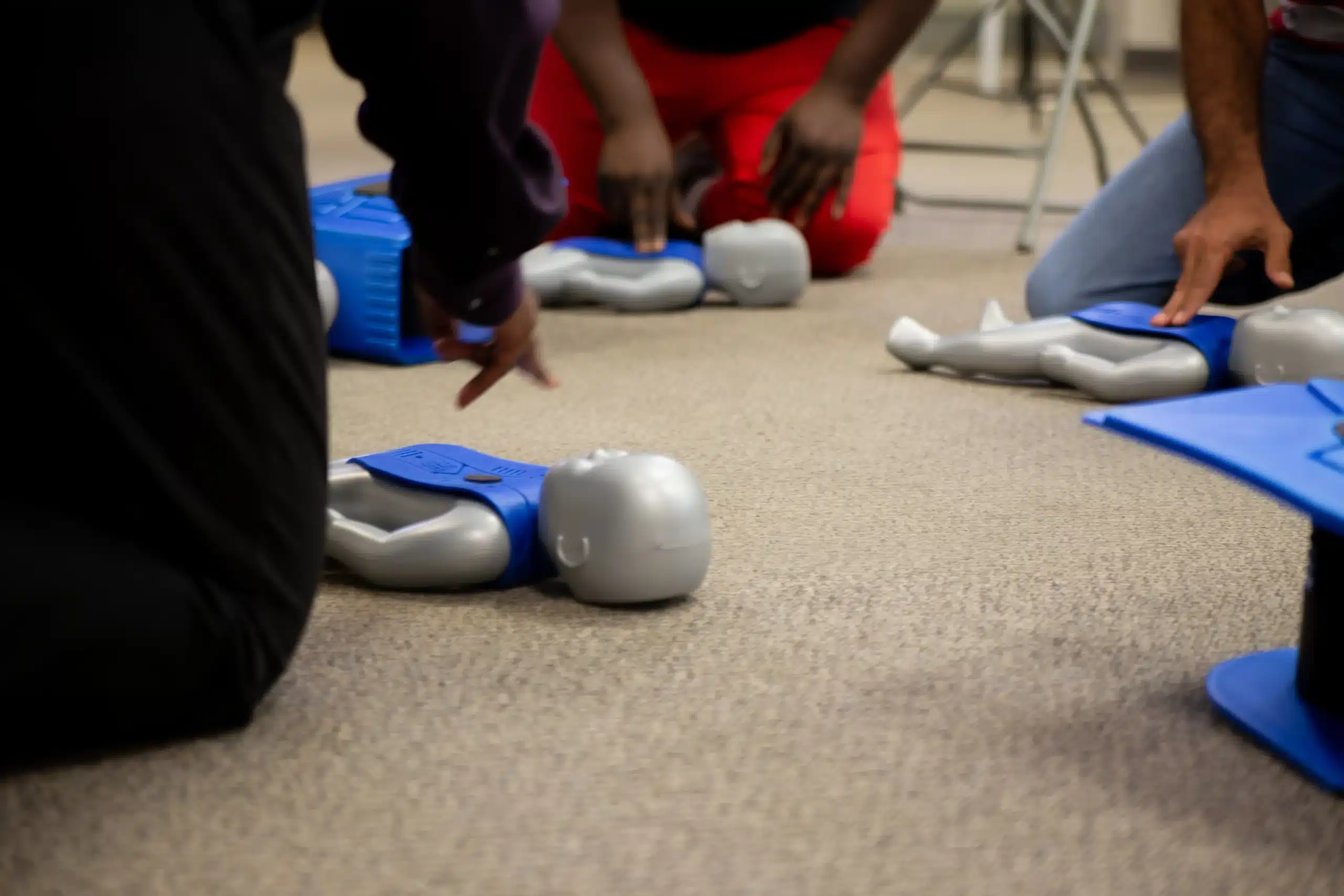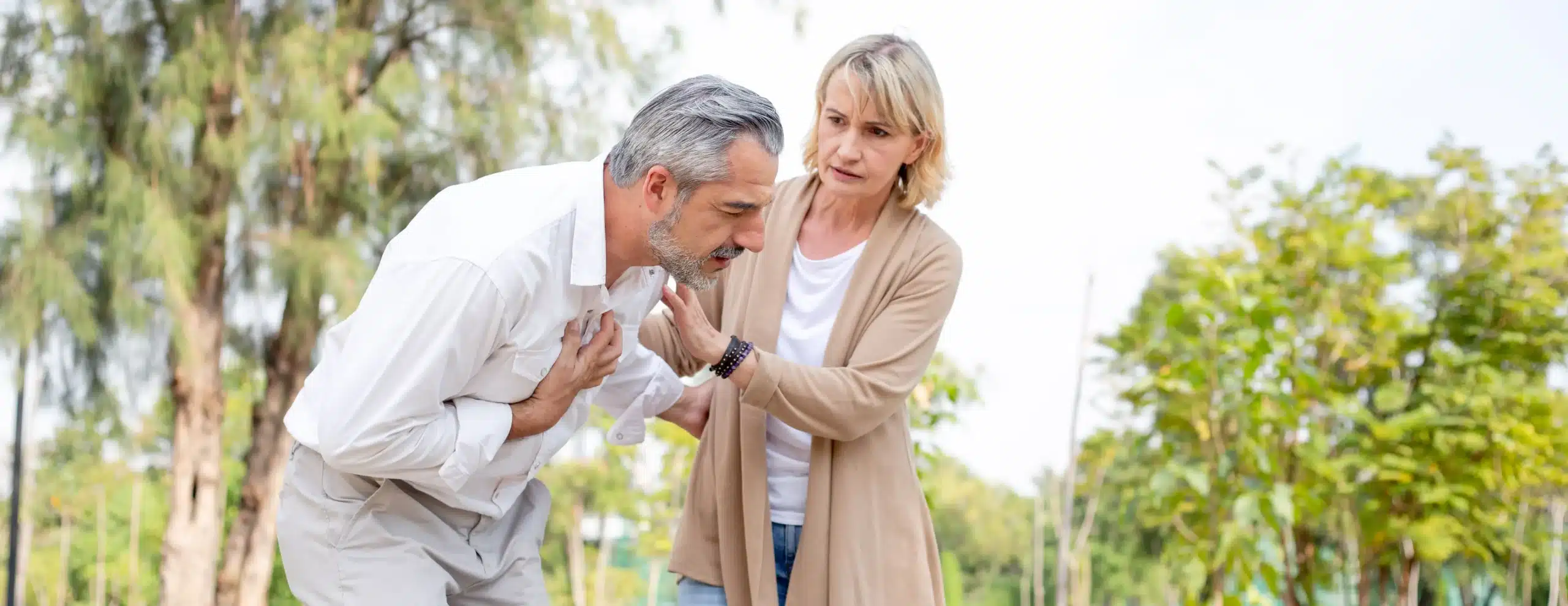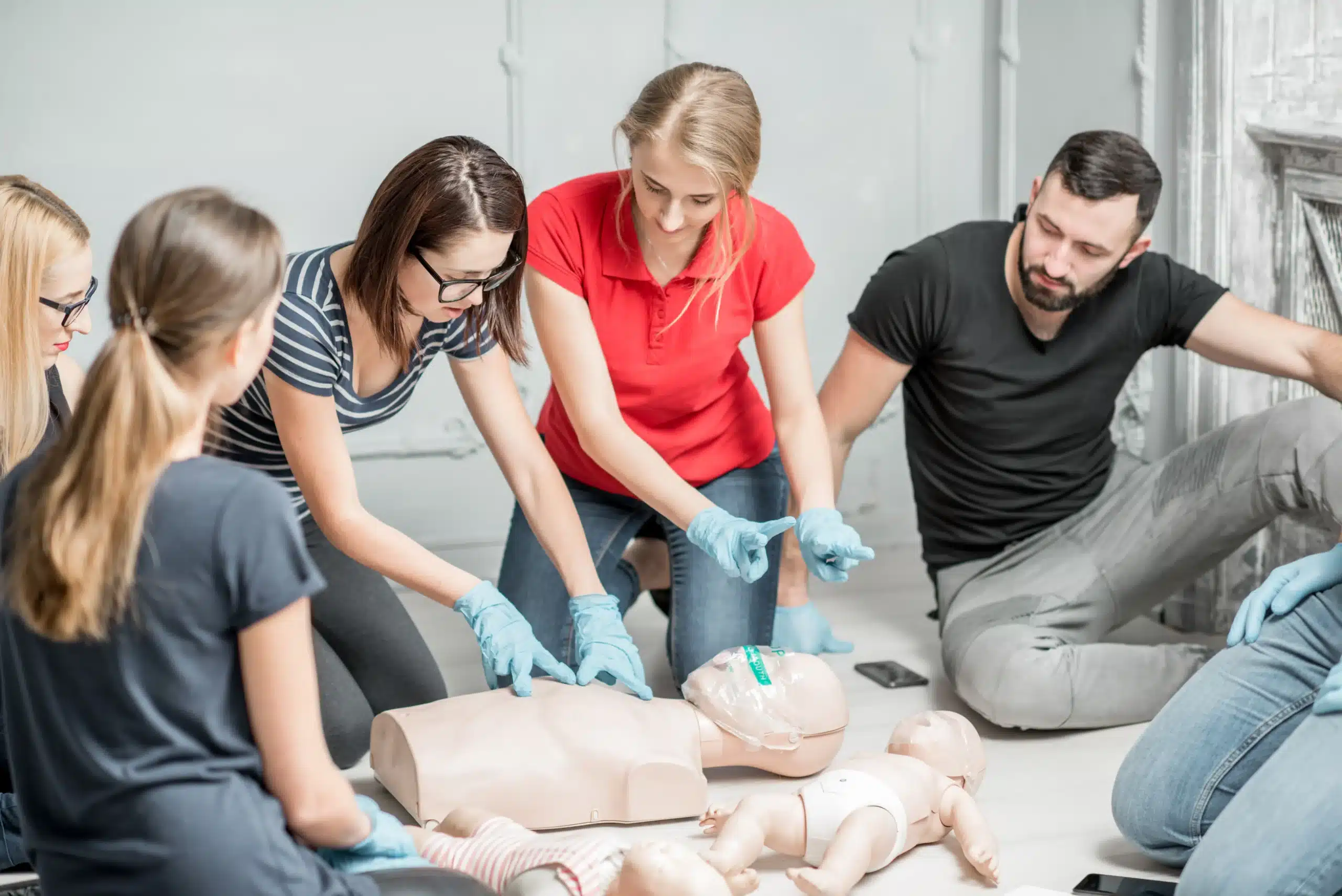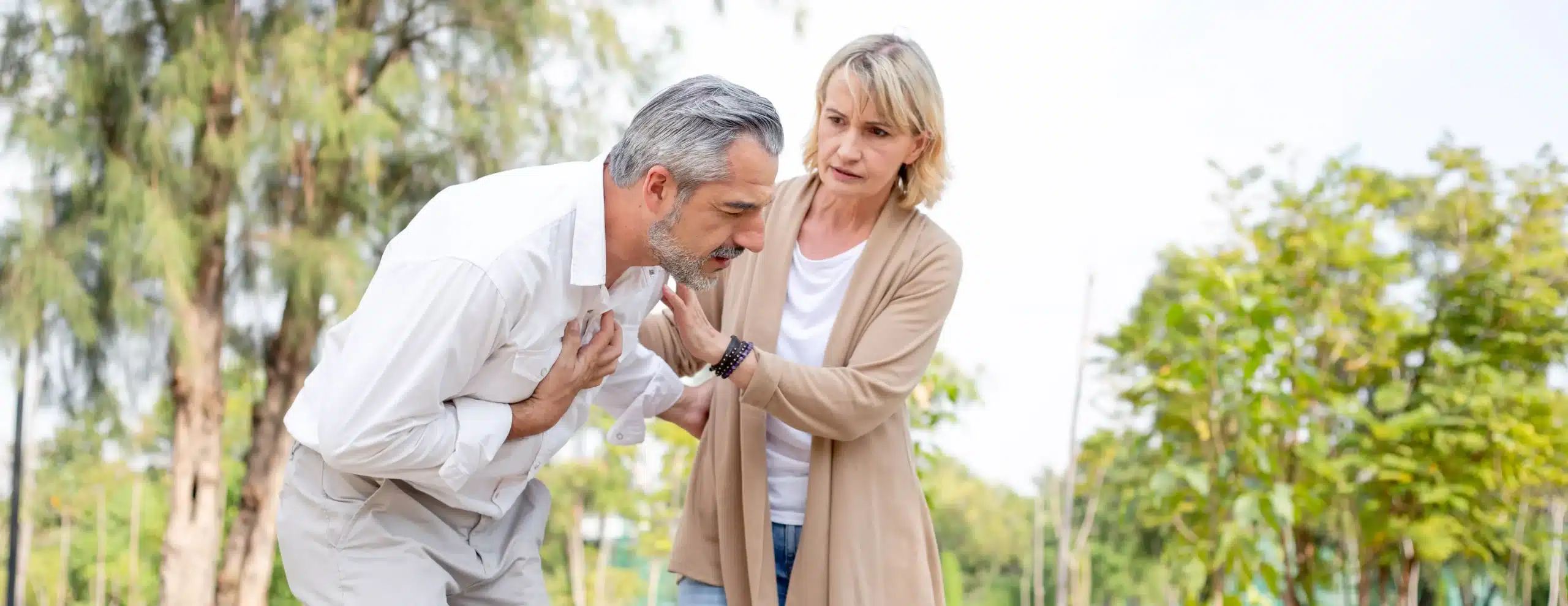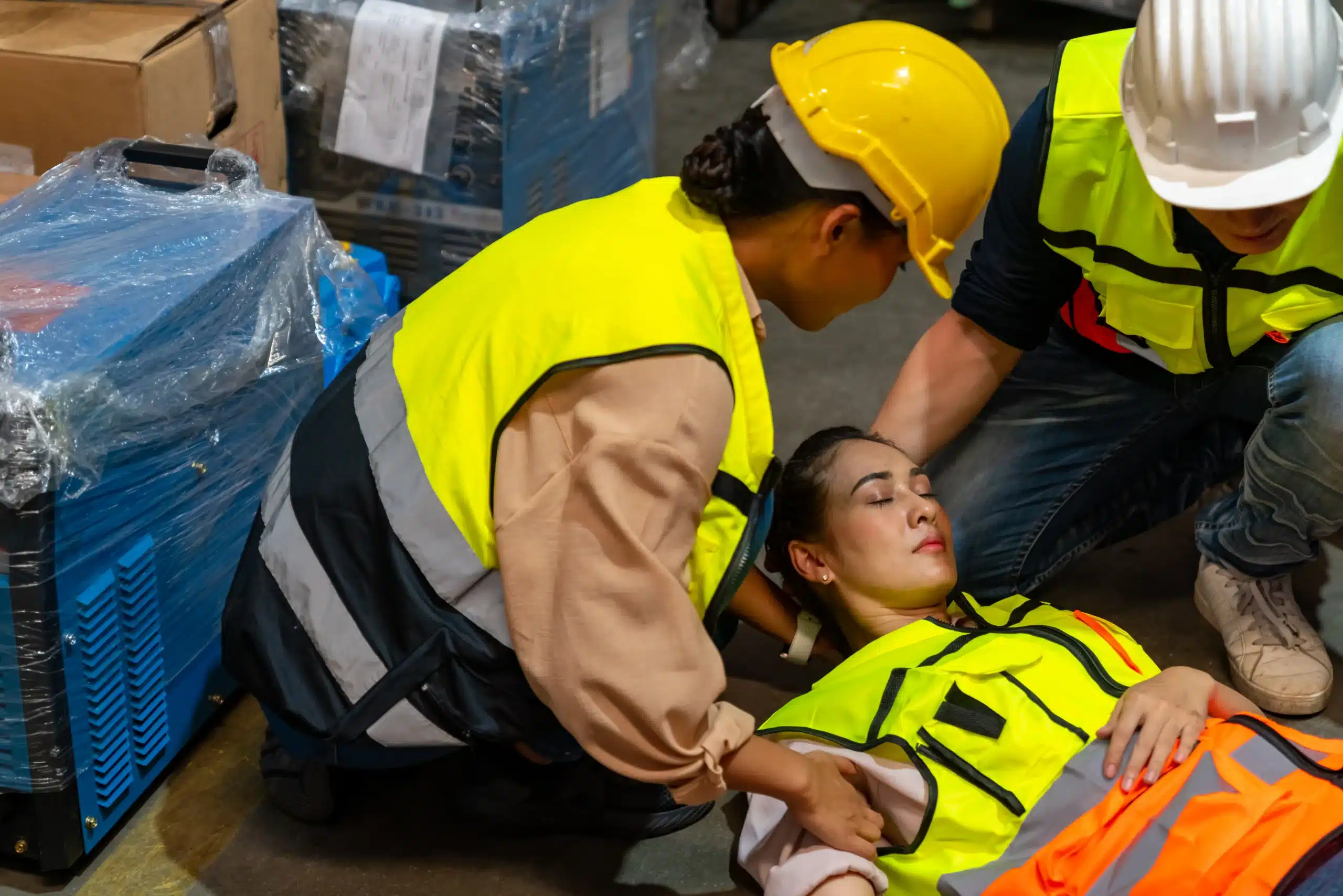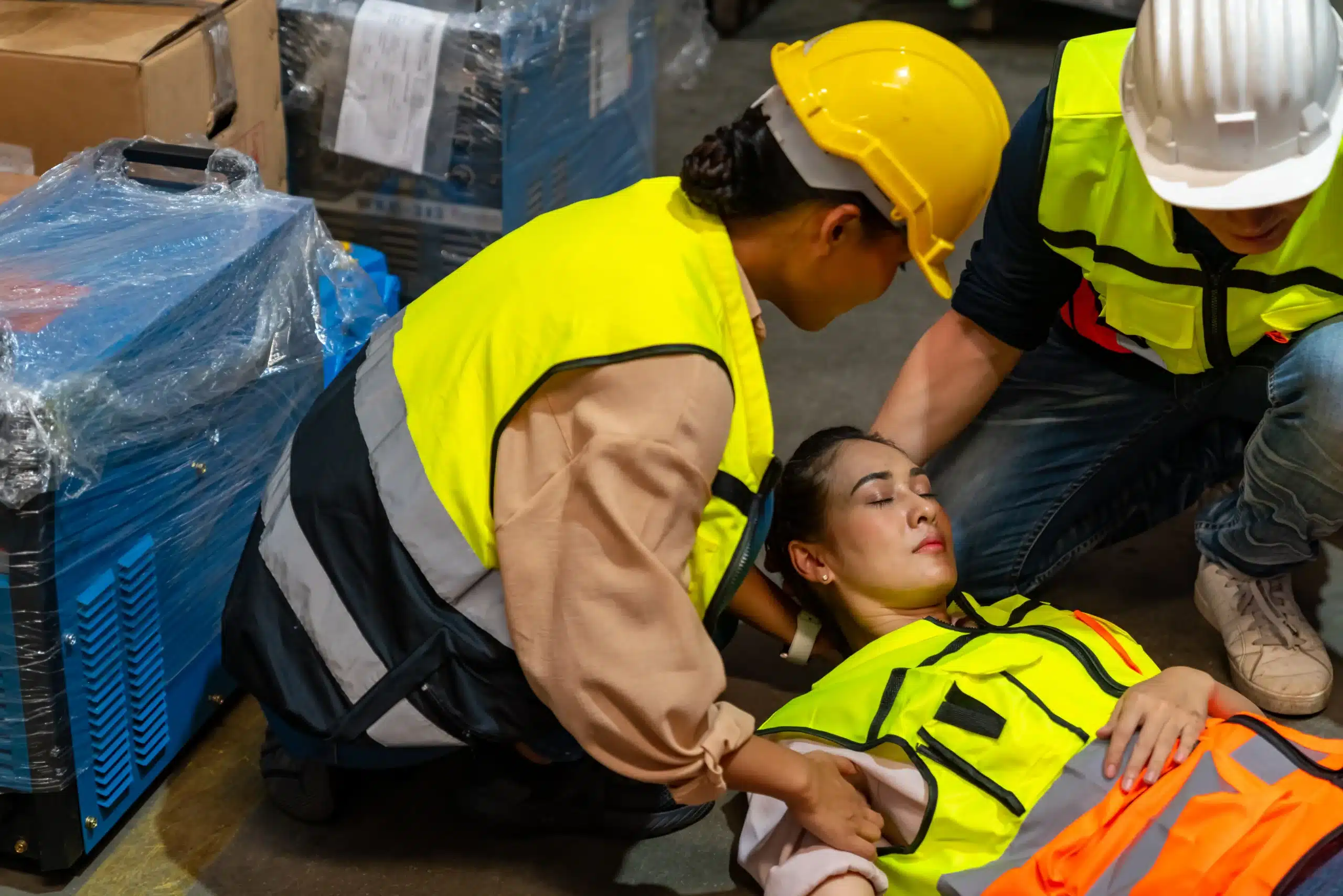In a medical emergency, seconds can matter. BLS training empowers you to act quickly and confidently, providing crucial care until professional help arrives. It’s about more than just CPR—it’s about understanding how to assess a situation, perform rescue breaths, and use an AED. If you’re a healthcare provider, caregiver, or simply someone who wants to be prepared, finding “BLS classes near me” is a crucial step. This article will break down the key components of BLS training, who should consider it, and how to find the right course to fit your needs and schedule.
Key Takeaways
- BLS certification provides essential lifesaving skills: Learn CPR, AED use, and how to relieve airway obstructions—skills that can make a real difference in a medical emergency.
- Choose a BLS class that fits your needs: Consider factors like location, schedule, and format (in-person, online, or hybrid) when selecting a course. Look for AHA-certified training and experienced instructors.
- Retain your skills with ongoing practice and support: Look for providers that offer refresher materials and resources to help you maintain your BLS skills and confidence.
What are BLS Classes & Why Do They Matter?
BLS (Basic Life Support) certification focuses on providing immediate care during life-threatening emergencies. It’s about more than just CPR—it equips you with a comprehensive skill set to address cardiac arrest, respiratory distress, and choking. These skills can make a real difference in stabilizing a person until professional medical help arrives, ultimately increasing their chances of survival.
Key BLS Skills
BLS classes cover essential skills, starting with high-quality CPR. You’ll learn to recognize the signs of cardiac arrest and perform chest compressions effectively. The training also includes using an AED (Automated External Defibrillator), a portable device that can help restore a normal heart rhythm. BLS certification also teaches you how to relieve airway obstructions in both adults and children. These skills are vital for anyone working in healthcare or regularly encountering emergency situations. For a deeper understanding of the distinctions between CPR and BLS, visit the Red Cross website for more information.
Who Needs BLS Certification?
BLS certification is essential for healthcare professionals, including doctors, nurses, paramedics, and other medical personnel. It’s also highly recommended for those in roles such as lifeguards, teachers, and childcare providers — anyone who might need to respond to a medical emergency. The American Heart Association offers detailed information on BLS and its importance. Holding a BLS certification demonstrates your preparedness and commitment to patient safety and high-quality care. It’s a valuable asset for career advancement and provides peace of mind, allowing you to act confidently in a crisis.
Find BLS Classes Near You
Berkeley CPR Classes: Your Local AHA-Certified Training
If you’re in the Berkeley area, finding a reputable BLS class is easy. Berkeley CPR Classes offers AHA-certified BLS training in Alameda, Oakland, and Berkeley. Our experienced instructors are dedicated to helping you master the skills you need to provide confident care. Our low price guarantee ensures you’re getting the best value, and we offer discount group classes too.
Other Reputable BLS Training Providers
We understand you might be exploring all your options. Here are a few other places to find BLS certification courses:
American Red Cross
The American Red Cross offers BLS training nationwide, with online and in-person options. Check their website to find a class near you.
Local Hospitals & Medical Centers
Many hospitals and medical centers offer BLS certification, often taught by their medical professionals. Contact your local hospitals, such as Hartford HealthCare, to explore their course offerings.
Community Colleges
Community colleges frequently offer affordable BLS certification courses. Check with your local community college for upcoming classes.
Fire Departments
Some local fire departments provide BLS training to community members. Contact your local fire department for more information.
BLS Class Formats & Pricing
Understanding the different BLS class formats and pricing structures can help you choose the best option for your schedule and budget. Let’s break down what you can expect.
In-Person, Online, & Hybrid Classes
BLS courses cater to various learning styles and preferences. In-person classes provide a traditional classroom setting with hands-on practice and direct interaction with instructors. These are ideal for those who thrive in a structured environment and value face-to-face learning. For those with busy schedules or who prefer self-paced learning, online BLS courses offer flexibility. These often involve online modules combined with in-person skills sessions for hands-on training. Hybrid classes blend online learning with in-person components, offering a balance between flexibility and direct instruction. Berkeley CPR Classes offers a range of AHA-certified courses with various scheduling options.
Flexible Scheduling
Many BLS training providers understand the demands of busy professionals and offer flexible scheduling to accommodate various needs. This might include weekend classes, evening sessions, or accelerated courses. Check with your chosen provider, such as Berkeley CPR Classes, to see what scheduling options they have. The Red Cross also offers flexible scheduling with both in-person and blended learning formats.
Costs & Discounts
The cost of BLS certification varies depending on the course provider, format, and location. While price is a factor, the value of the training lies in the skills you gain. Berkeley CPR Classes offers a low price guarantee, ensuring you receive quality training at a competitive price. It’s always a good idea to inquire about potential discounts, especially for group registrations. Group discounts can make training more affordable for workplaces or groups of friends.
Payment & Refunds
Most BLS training providers offer various payment options, making it easy to register for a class. Be sure to inquire about refund policies in case your plans change. Some providers offer convenient tracking of your certification and send renewal reminders, simplifying the process of maintaining your credentials. Always confirm payment details and refund policies with your chosen provider before enrolling.
Enroll in a BLS Class
Now that you understand the importance of BLS certification and have found potential training providers, let’s walk through the enrollment process. I’ll cover everything from signing up to what to expect in the classroom.
Enrollment Steps
Enrolling in a BLS class is usually straightforward. Most providers, including Berkeley CPR Classes, offer online registration. You’ll typically select your preferred course date, time, and location, then provide your contact information and payment details. Some providers may require you to create an account to manage your certifications and course history. Be sure to check the specific enrollment process for your chosen provider. For those looking for group discounts, check out Berkeley CPR Classes’ group discount page.
Required Materials & Prerequisites
Generally, there aren’t any prerequisites for BLS certification. You don’t need prior medical experience to enroll. As for materials, most providers include the cost of the course manual and any necessary equipment in the course fee. You might want to bring a notebook and pen to take notes, but that’s usually optional. The focus of BLS is on practical skills, so expect hands-on training and assessments. While the BLS certification cost can vary, it’s generally affordable and accessible to anyone wanting to learn these lifesaving skills. Berkeley CPR Classes also offers a low price guarantee.
Class Size & Hands-On Practice
BLS classes emphasize hands-on learning. You’ll practice essential skills like CPR, using an AED, and providing rescue breaths on mannequins. The size of the class can impact how much individual attention and feedback you receive from the instructor. Smaller classes often allow for more personalized instruction and opportunities to ask questions. Studies00716-7/fulltext) have shown that receiving feedback during these practice sessions significantly improves skill retention. When choosing a class, consider what kind of learning environment will work best for you. If you’re interested in refresher courses, consider exploring RQI classes offered by Berkeley CPR Classes.
Choose the Right BLS Class
Not all BLS classes are created equal. Finding the right course means considering several factors to ensure you receive high-quality training and get real value from your certification. Here’s what to look for:
Evaluate Course Content & Instructors
A solid BLS certification course starts with a good foundation. Look for classes that cover the essentials of basic life support, from the fundamentals of CPR to using an AED. Experienced, certified instructors are also key. They can provide personalized feedback and create a supportive learning environment. Experts who meet or exceed national standards will ensure your training aligns with the latest best practices. At Berkeley CPR Classes, our instructors are American Heart Association-certified and bring years of real-world experience to the classroom.
Post-Course Support & Skill Retention
BLS skills require upkeep. Think about what happens after the course. Does the program offer refresher materials? Look for providers that offer resources like quizzes, videos, or access to a BLS handbook to help you retain those critical skills. Ongoing support can make a real difference in your confidence and preparedness. Studies show that objective feedback during and after training significantly improves skill retention.
Reviews & Testimonials
Before committing to a BLS class, check out what others are saying. Reviews and testimonials can offer valuable insights into the quality of instruction, the course format, and the overall learning experience. Look for comments that mention the instructors’ expertise, the helpfulness of the course materials, and whether the class prepared students for real-world scenarios. Also, consider whether the provider offers options for BLS recertification when the time comes to renew your credentials. At Berkeley CPR Classes, we pride ourselves on our commitment to student success and encourage you to see what our students have to say.
Related Articles
- BLS Certification in Berkeley: Your Comprehensive Guide – Berkeley CPR Classes
- BLS Courses in Berkeley: The Ultimate Guide – Berkeley CPR Classes
- BLS Classes in Berkeley: The Complete Guide – Berkeley CPR Classes
- BLS Certification in Berkeley: A Healthcare Guide – Berkeley CPR Classes
- BLS Renewal in Oakland: Your Guide – Berkeley CPR Classes
Frequently Asked Questions
What’s the difference between CPR and BLS?
CPR is one component of BLS. BLS encompasses a broader range of lifesaving skills, including CPR, AED use, and relieving airway obstructions. Think of BLS as a more comprehensive approach to emergency care. It builds upon the foundation of CPR to equip you with a wider skillset for various situations.
How long does BLS certification last?
BLS certification is typically valid for two years. It’s important to renew your certification before it expires to maintain your skills and credentials. Many providers offer renewal courses, often streamlined for those already certified. Staying current with your certification ensures you’re always prepared to respond effectively in an emergency.
Is online BLS certification as good as in-person?
Both online and in-person BLS certifications are equally valid and meet the same standards. The key difference lies in the learning experience. Online courses offer flexibility, while in-person classes provide more direct interaction with instructors. Hybrid courses combine the benefits of both formats. The best choice depends on your learning style and schedule.
How do I choose a reputable BLS training provider?
Look for providers offering AHA-certified courses. Check reviews and testimonials to gauge the quality of instruction and student satisfaction. Consider factors like course content, instructor experience, post-course support, and flexible scheduling options. A reputable provider will prioritize your learning experience and equip you with the skills you need to confidently handle emergencies.
What if I need to renew my BLS certification?
Most BLS training providers offer renewal or recertification courses. These courses are often shorter than the initial certification course, focusing on refreshing your existing skills and updating you on any new guidelines. Check with your original provider or other reputable organizations for renewal options. Staying current with your certification ensures your skills are sharp and up-to-date.


